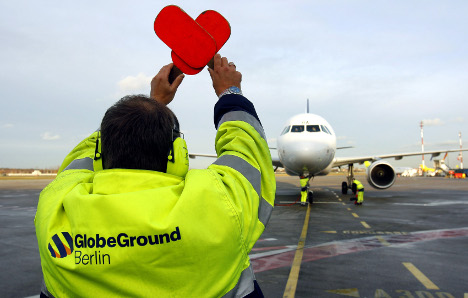The strike is part of public service union Verdi’s ongoing campaign of warning strikes as it negotiates for better pay and conditions. The next round of negotiations of is scheduled for Wednesday.
Verdi has called on all baggage handlers, ground transport crew, technicians, security personnel and administrators to down tools.
The airport strike affects all of Germany’s major hubs, as well as minor airports in Bremen, Hannover, Münster-Osnabrück, and Dortmund. The strikes at major airports are:
– Frankfurt airport: 5:30 am – 2:30pm
– Munich airport: 5am – 2pm
– Düsseldorf: 4am – 12 noon
– Cologne/Bonn: 8am – 2pm
– Stuttgart: 6am – 11 am
– Berlin (both Tegel and Schönefeld): 5:30am – 12 noon
Germany’s biggest airline Lufthansa has cancelled nearly 430 flights across the country, though some flights have been delayed until the afternoon, when the schedule is expected to normalize. Further information is available on the Lufthansa website (link below).
Verdi has called for a 6.5-percent hike in salary for its two million members. The federal state and local authorities countered this with an offer of 3.3 percent over two years.
Tuesday’s strikes have also hit public transport in the state of Rhineland-Palatinate, where the towns of Kaiserslautern, Mainz and Trier were all affected. A variety of public services in the small state of Saarland have also been stopped.
The strikes should “accelerate the talks,” said Verdi head Frank Bsirske.
Interior Minister Hans-Peter Friedrich criticized the expansion of the industrial action. “Since we’ve made a substantial offer, it is not justifiable to maltreat the population with these strikes,” he told the Rheinische Post newspaper.
A series of strikes at Frankfurt Airport last month over a separate pay dispute saw hundreds of short-haul flights cancelled. This dispute was settled on March 21.
The Local/DPA/DAPD/AFP/bk



 Please whitelist us to continue reading.
Please whitelist us to continue reading.
Member comments